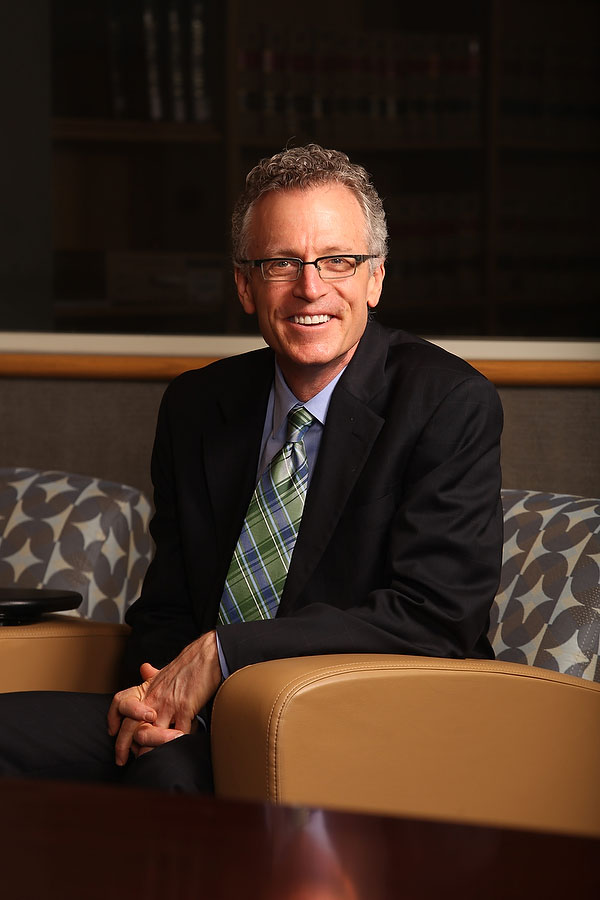Dean Michael Hunter Schwartz to train professors at all-women Saudi Arabian law school
A University of Arkansas at Little Rock dean is leaving his mark on law school education in the Middle East.
Michael Hunter Schwartz, professor and dean of the William H. Bowen School of Law, traveled to Saudi Arabia on Jan. 10 to lead workshops for law professors who teach at Prince Sultan University, the country’s first all-women law school. The institution is located in Riyadh, the Saudi Arabian capital.
Helping legal educators more effectively reach students and helping law students succeed is Schwartz’s passion and expertise. He authored a textbook for a series he designed and edits, four teacher training books, a bar pass book, and a law school success book with those goals in mind, and he has traveled to roughly 75 law schools since 2003 to conduct faculty and student training programs. Schwartz has made more than 200 professional presentations in the field. He is generally regarded as one of the leading U.S. experts in law school teaching, law school learning, and the bar exam.
In 2009, he added training programs for foreign law teachers to his repertoire, and, since 2009, he has trained law professors from Chile, Taiwan, Germany, Turkey, and the Republic of Georgia.
This was his first trip to Saudi Arabia, an outreach organized by the American Bar Association as part of its Rule of Law Initiative.
Improving legal education in other countries promotes the rule of law, and it’s more difficult for dictatorships to emerge and human rights violations to occur when countries adhere to laws as their authority, Schwartz said.
“Law ensures consistency and fairness,” he said. “We in the United States believe in the rule of law rather than the rule of man.”
During his four days in Saudi Arabia, Schwartz worked in English with his co-trainer, Sophie Sparrow, a law professor at the University of New Hampshire, who wore the traditional Saudi Arabian body coverings for women. Schwartz donned a suit, his usual attire for workshops. The participating professors all spoke and read English fluently.
Although Schwartz charges for his training services in the United States — he brought in about $25,000 in training fees for the Bowen School of Law since he arrived in Little Rock in July 2013 — he isn’t compensated for his overseas work beyond the funding the American Bar Association provides for expenses.
Schwartz is convinced the association’s work is a worthwhile endeavor that can improve the quality of life in other countries.
He also just enjoys the process.
Schwartz particularly appreciates the sometimes daunting task of trying to convince highly intelligent law school professors they should change their practices.
He customizes his training to the needs and size of the audience and is not afraid to try something completely new that research suggests should work — even if that might make him a little nervous.
“I actually enjoy the challenge and the risk,” Schwartz said. “The possibility that it could fail pretty horribly keeps me stimulated.”
To date, none of the workshops have failed horribly: Organizers keep inviting Schwartz to return.
He gets email feedback from professors who report they’re using methods he taught them, but the ultimate test of success, Schwartz said, is whether they make long-term technique improvements.
One of those successes occurred when, in the Republic of Georgia, organizers created their own institute of teaching following a multi-year training program designed and taught by Schwartz.
Schwartz models effective teaching methods during the sessions. He prefers interactive structures rather than traditional lectures, even in a class of 400.
“I really don’t think the size is a restriction,” Schwartz said. “Even in a very large group of law teachers, I demonstrated that law professors can effectively use interactive and collaborative teaching techniques.”
Schwartz plans to continue teaching instructors as a way to improve legal education and the practice of law.
Overseas work has become an important part of that mission.
“Training law teachers is my passion is and what I imagine doing for the foreseeable future.”
